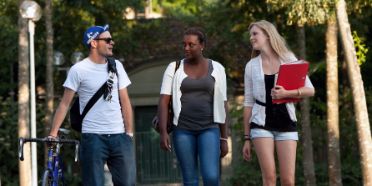The Bern Region
The BFH sites are located in an attractive region in the heart of Switzerland, with the Alps and all major cities within easy reach:
Bern
is the country’s capital and its 800-year Old Town (UNESCO World Heritage), many green spaces and the river Aare, which is popular for swimming in the summer, make for a high quality of life. A great variety of cultural, sport and leisure facilities ensure that there is always plenty to do.
Biel
is the second-largest town in the Canton Bern and Switzerland’s largest bilingual centre. 60 % of the inhabitants speak German, 40 % French. The town lies on the shores of Lake Biel and at the foot of the Jura Mountains. It has a reputation as a world centre for watch-making and high-tech industry.
Burgdorf
is the gateway to the picturesque Emmental valley, a favored holiday location with its rolling green hills, stately farmsteads and lively traditions. The tranquil town of Burgdorf has a well-preserved Old Town and an imposing castle.
Magglingen
is a bilingual town situated in the Bernese Jura at about 900 meters above sea level. On a fine day, the view of the Alps can be admired across the Bernese plateau.
Zollikofen
is a suburb of Bern and has a very well established public transportation system with connections to the city of Bern, which is only 10 minutes away by train.


